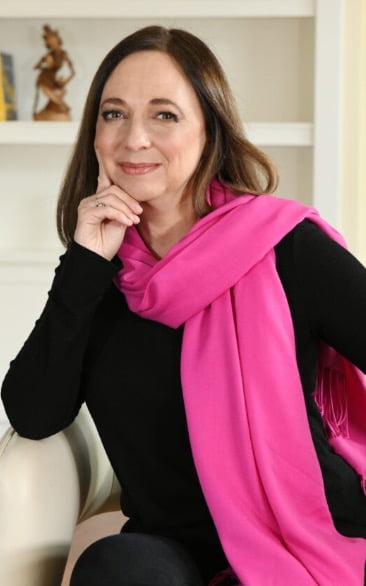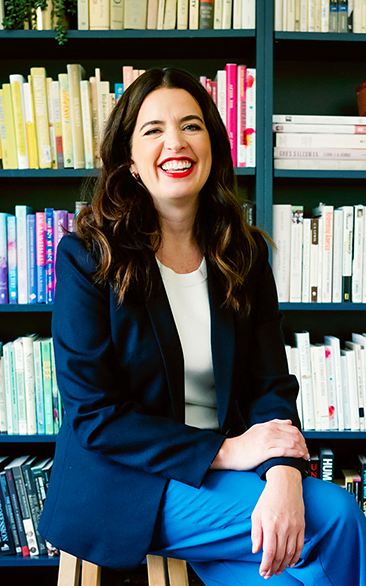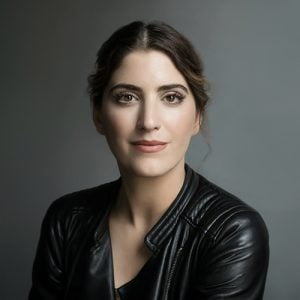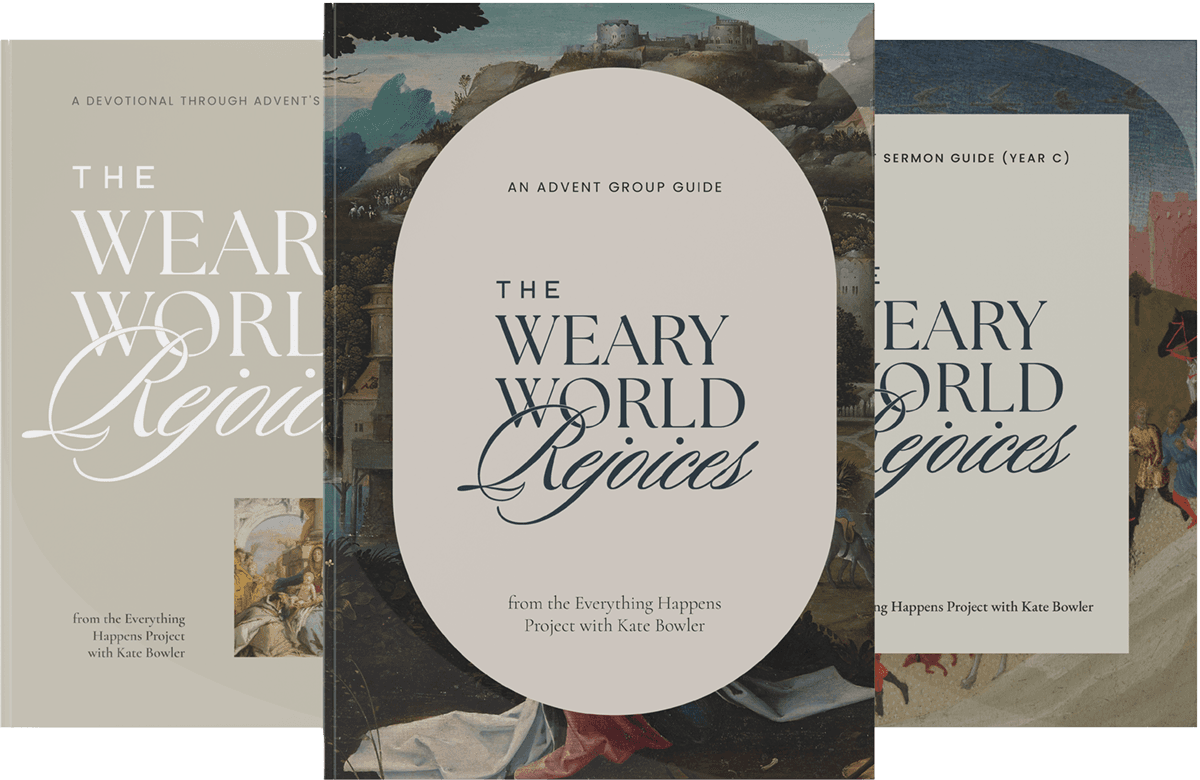Kate Bowler: Oh, hello. I’m Kate Bowler. And this is everything happens. I imagine if you were listening to this episode, you might fall into one of two camps. Maybe, you know, the feeling of having a before and after a life that’s unraveled. Be it divorce or disease or the death of someone whose loss has carved out a hole you don’t know how to fill. You might have a chronic disease or a sick kid or an aging parent and your caregiving in a way you didn’t picture having to do, maybe a dream of a family didn’t come together. Or maybe mental illness or addiction has carved a line through your family or your story. Or perhaps you love someone who’s had their life come undone. Or you might even work in an emotionally expensive profession. You’re a doctor or nurse or teacher or health care worker. Maybe a social worker or therapist or pastor or first responder. Whatever it is that has brought you here today. Hello. Welcome. This is a place where we really know the cost of being a person. The reality of lives that don’t always work out like we imagined they would. The heart brokenness that too often comes with love. The expense of continuing to care. There is something we’ve come to discover here. Of course, we didn’t ask for these lessons, quote unquote. And frankly, we really wish we didn’t have to know the truths we now hold so close our before and after so charged us. And that’s okay. But we see it clearly now the way that pain and beauty can live so close together, the way our losses compound. And yet, somehow, joy is still possible. Maybe that truth shows up in dark humor we’ve already developed. Really? That’s you. That makes me love you even more. We had a listener write in last week after hearing our episode with Dr. Haider Virag about chronic pain, and she’s struggled with her own chronic ankle arthritis for so long and has named her pain Kyle after the animated dog in the movie Despicable Me, the one that has very long, very sharp, very pointy teeth. She writes, The pain often feels like Kyle is chewing vigorously on my new ankle and raw nerve endings. Naming it, blaming the dog with a little humor does help. Yep. She is our people. She gets it. And today’s guest gets it, too. The way we can learn to be human in our sadness and in our hope, in our lament and in our joy, it tells us something about ourselves, doesn’t it? And about each other. My guest today is the incomparable Susan Cain.
Kate Bowler: Susan Cain is the author of a book that spent eight years on the New York Times bestseller list. And it’s called Quiet: The Power of Introverts in a World That Can’t Stop Talking. And her TEDx talk has been viewed over 40 million times, and she is a complete delight. Today, I get to talk with her about her latest book, Bittersweet: How Sorrow and Longing Make Us Whole. Susan, I’ve been looking forward to this forever. Thank you so much for doing this.
Susan Cain: Me, too. Kate Bowler. We have so many people in common and so many people have been saying you must get to know Kate Bowler, like I don’t know how long I’ve been hearing that. So this is a great day.
Kate Bowler: Well, this is my this is my pre-vetted friend policy at work A equals, B equals C, and C equals: Thank you for being my best friend. I look forward to our vacations together. I appreciate this.
Kate Bowler: You start this book in such a tender place, the phrase bittersweet that you use and the way that you you explain it begins with the melancholic, specifically in music. What is it about that more somber music that rings something true in all of us and maybe especially in you?
Susan Cain: Well, I mean, this is actually the question that got me down this whole bittersweet garden path in the first place. Not a garden path. But, you know, I’ve been so deeply immersed in it now for almost a decade. But but it began just with a burning question that I had to understand how it could be that sad music, which minor key music, which it should be by definition would make us feel sad. Why? It would be that it produced in me and in many friends who I spoke to a kind of sense of uplift and communion and beauty. And then I came across this viral video on YouTube. I don’t know if you’ve seen this one, but it’s a video of a two year old little boy and he’s sitting on his father’s lap at his sister’s music recital. And he’s hearing Beethoven’s Moonlight Sonata for the first time, you know, like famously melancholic, haunting, beautiful music. And he’s hearing it for the first time and and someone’s filming him with an iPhone, and he’s just, like, overcome with emotion and the tears streaming down his face and oh, my gosh. And this video went viral. And like all the commenters are trying to figure out, what is it that’s making him cry? And the conclusion that they come to, and really that I have come to is that there is something about experiencing joy and sorrow simultaneously, which is what we do when we hear beautifully sad music. There’s something about that that’s like, okay, that’s telling the truth. There’s like a deep truth in that because that’s what life is. It’s both of those things. There’s this understanding that there’s something in the bittersweet longing that unlocks our deepest state of creativity and connection. And, you know, we’re living in a culture that tells us not to talk about that. And in fact, when I did talk about it at ten, a couple of years ago, I came off stage and people were like, Oh, I really didn’t know you were so depressed.
Kate Bowler: Right,right.
Susan Cain: And I was like, no, that’s not what I was saying at all. Yeah. So yeah.
Kate Bowler: How dare you talk about the deep end in a different way? There’s a lovely phrase, gosh, now is it Barbara Brown Taylor about talks about solar Christianity? The true things we know about God when the sun is shining, but then also talks about the things when in her book, right, Learning to walk in the dark about lunar faith and that the beauty of all the things illuminated only when things went dark. And it occurs to me just how difficult it is for us to offer those kinds of, like what are those truths called? In our culture, who just immediately wants to call it two sad, depressing versions of grief. But it is a kind of… gosh, I love that you’re using the I’m making this weird flicking gesture because obviously podcasts are a notoriously visual medium. But we we talk a lot about when we are on this podcast and in this project where something like flicks the cord and of like transcendence and then it rings through us that I do find that feeling is so is so real. And it’s, it’s, it’s so visceral.
Susan Cain: It’s so visceral, it’s so visceral. And it contains in it, I would say, the seed of something ecstatic. And I’ve really been trying to figure out how that could possibly be. And yet I know it to be true. And I’ve actually been really fascinated, you know, in all these wanderings that I’ve been doing through all these different traditions, I’ve been really fascinated to see how if you look at the mystical side of so many different religions, you know, the mystics are talking about a kind of sense of longing for God, longing for the divine, longing for Eden, you know, longing for the beloved of the soul, whatever you call it. And there’s there’s the idea that the ecstatic union that the the person is seeking is actually inherent in the longing itself.
Kate Bowler: Mm hmm. It reminded me of there’s this wonderful missiologist named Andrew Walls, and he wrote this beautiful piece about a book about the way faith feels when it goes somewhere, when it when it starts belonging to because he was a missionary belonging to people that are not him in languages that are not his. And, and his vast experience led him to write a history of faith that said that there was always two impulses inherent in what he was saying, this indigenization principle, the feeling that faith always needs to make a home, but also a universalizing feeling that it never belongs to you. And it creates a new this kind of ache in which you belong to a thing that is not you. And so that’s that’s what that reminds me of when I when I hear you use that phrase.
Susan Cain: Oh, I love that. The ache. The ache.
Kate Bowler: I was walking around the Whitney, that gorgeous art museum in New York City the other day, and I was looking at Jasper Johns exhibit, who is famous for these incredible abstract expressionism pieces. And I saw this piece from across the room. And when I read your book, this is what it reminded me of immediately is I thought at first it was just sort of brown blobs and you get closer and you realize that there’s hands at the top and feet at the bottom and these swirling motions. And I knew immediately that that man was there, was drowning. And the piece is called The Diver. And, you know, with this this like shiver that that he’s describing the feeling of when you are submerged and then it’s pulling you into it reminded me of the MRIs I’ve been in. It reminded me of the feeling where I can’t find a breath. But it it’s wild how art, how music can pull us into this feeling that we are part of everything, even, you know, this incredible little flicker of the divine, even when we’re just sort of like standing in a in a courtroom looking at what I thought was going to be blobs. Yeah.
Susan Cain: Yeah, yeah. And I think it’s a it’s artists and musicians willingness to tell the truth that makes us feel that we’re actually together, that makes us feel that sense of communion. So that’s really what I was drawn to.
Kate Bowler: Yeah. Yeah. Sometimes too. I’m sure you’ve and all the people you’ve interviewed and the time you’ve spent as both a public intellectual and a community builder, is that sometimes when we look at people, we know that. They know that ache. My friend Margaret called, like the fellowship of the Afflicted. Mm. Well, part of what makes this community so special is that so many of us have lost someone, or we. We live with a kind of precarity or are in roles that. That make us scoot up to the edge. You’re also someone who knows that longing. And I wondered if if you would mind if we talked a little bit about your story. So you’ve lost such a tremendous amount in the midst of the pandemic and in midst and writing about longing. And I, I wondered if you wouldn’t mind sharing. If you could tell me a little bit about your incredible brother.
Susan Cain: He died right at the beginning of the pandemic. In April 2020. He got COVID and very quickly thereafter had a stroke. So he was 11 years older than I was. And. Yeah. You know, he had gotten married for the first time only that year, like it was November of that. So November of 2019. Yeah. After a seven year relationship. And like, they’d had this really beautiful him, his wife Paula had this beautiful relationship. And the wedding he was talking about how the theme that most people seem to say to him about his relationship was better late than never because he had gotten married at such an old age. But for him, the real theme was worth the wait. And that really did. And it really was true of them. Like they were so, so happy together and cozy together. And it was really wonderful. I mean, it was very hard, heart wrenching. And also, you know, how how amazing that he had gotten to have those seven years of such true love before he went. And I guess the the other thing, you know, he was a very, very modest person. And after he died, you know, all these floods of letters came in from the people he had worked with at his hospital. And they told me all these things that I had not known about at all, you know, like all these words he had won for being the most dedicated teacher to the other physicians and like going to the hospital rooms at three in the morning to make sure he had done the ultrasound correctly and all these different things like this. And there’s so much that we don’t know. Oh, there’s like sort of an interesting lesson of what? Especially if you tend to be on the more modest side of things, like the things you don’t share, maybe with your friends and family that they would actually love to know while you’re still there, you know? Yeah.
Kate Bowler: Yes. That must have been so sudden.=
Susan Cain: Yes, it was. It was very shocking.
Kate Bowler: Yeah. I’m sorry, Susan, you’ve you’ve had a rough season. You lost your dad not that long after.
Susan Cain: Yeah. Also with COVID. Also with COVID. So sorry. Oh, thank you. Thank you. I will say that I had started writing this book before those things happened. Yeah, I started. I started years ago writing it. So I don’t know. I mean, for various reasons, I suppose. That word precarity that you used earlier, that’s a word that I use a lot too. I do.
Kate Bowler: I love it. It feels helpful for me to frame it like that instead of imagining everything as permanent and therefore me being a little nuts for not understanding the permanence of life. It helps me feel like being delicate might be okay.
Susan Cain: Yeah. Yeah. I mean. Well, I don’t know. I’ve always felt it, I suppose, but. And I. I don’t know. I guess when I was younger, a feeling it gave me more trouble. But can but I will say, having done this research now, have you ever come across the work of Laura Carstensen?
Kate Bowler: No.
Susan Cain: Oh, my gosh. You have to read about her. So she’s this longevity researcher at Stanford, and she’s done all this really interesting work that’s found that older people are happier, as she puts it. Do you know who I’m talking about?
Kate Bowler: Yes! That’s right. Of course! So amazing. Okay, tell me. Tell me why I love it.
Susan Cain: Yeah, it’s so incredible because… So she basically found older people, you know, they tend to be more full of gratitude. They’re more focused on meaning, deep friendships, less prone to hair trigger anger. You know, all these facets that we would associate with wisdom. And so then you think, well, the explanation must be that, as the folktales say, that old age somehow confers wisdom through this magical process. But it turns out it’s not really magic. And instead, the key thing is the awareness of precarity. It’s just it’s just that older people know that they don’t have so much time left. And that’s what shifts their their whole perspective and their emotional affect and everything. She found this out because she also did studies of younger people, but younger people whose lives had been disrupted by a precarity of one form or another, whether it was an early illness like you, or whether it was people who had gone through the wars epidemic in Hong Kong at the turn of the 21st century. She looked at other other kinds of categories like that. And basically anytime she found groups of people whose life circumstances had brought them to look at precarity. They also had conferred upon them these other attributes of being kind of more in touch with her, with a state of meaning. I thought, Oh, that’s really interesting. I feel like that’s also, I think, what the sad music has been saying for all these years.
Kate Bowler: Oh, my gosh. Yes. There is something about that kind of sadness that feels like a like a bright reality, like it has a kind of crystalline quality to it. Why do you think it helps us see the world as it really is?
Susan Cain: Well, because that is part of the world. And, you know, in our culture, we’re not really told that so much. I mean, we’re told much more that it’s like when things are going well, that that’s the default and that when the illness comes or the bankruptcy comes or whatever it is, you know, that that’s the ghastly detour. Like that’s that’s the way we’re taught. And I don’t think that’s true. I think what’s true is that the joy and the beauty and these sorrows and these disruptions, like they’re all part of it together. And I think there’s something about being told the truth and being able to know the truth. That’s very crystalline. What was the word you used, Crystalline? Yeah. Yeah, I love that. Yeah. And then the more you can tell the truth, the more you’re connected to everybody else who’s experiencing the same truth. That that’s a big part of it.
Kate Bowler: I wanted to ask you about that, because we’ve got this lovely, very empathetic community here. And you talk about the wonderful, productive relationship between compassion and the feeling we’re describing. How does pain open us up to one another?
Susan Cain: There’s actually an evolutionary basis for this, I discovered. So I guess I’ll start there. I spent a lot of time with Dacher Keltner. He’s this amazing psychologist at Berkeley. He’s got blond flowing hair and he looks like a surfer. And he radiates joy and awe and warmth. And you would think, like, this guy’s all about joy. That’s what you would think when you first meet him. And then you talk to him and he tells you his story. And he tells you that sadness is at the heart of everything he does, as well as on wonder and joy. He’s totally experiencing all this and he’s done all this work on what he calls the compassionate instinct in humans. And what he found is basically because as mammals, this is true in all mammals, because the only way the species survives is if we can respond viscerally to the cries of our infants. For that reason, we are primed to respond to distress signals or signals of vulnerability from other beings in general. It doesn’t mean that that’s all of us, because obviously there’s the side of human nature that is distressingly cruel and violent. But we do have this compassionate part of us, and we actually have the vagus nerve, which is the biggest bundle of nerves in our body. It’s so fundamental. It regulates, ah, breathing and our digestion. And also, if you see somebody in distress, your vagus nerve becomes activated. So it’s like it’s telling us that this part of us physically that’s so basic that it regulates, ah, breathing also regulates our compassion. And I love that because it’s like, yeah, you know, compassion is not just sort of a Sunday school story that we’re taught. It’s like it’s fundamental. Yeah. And the way he puts it is that we think of Darwin as being about survival of the fittest. But he was equally about survival of the kindness, the the lessons that we take from him.
Kate Bowler: I would totally pick that bumper sticker. I really would.
Susan Cain: Survive because I know it’s so good. It’s so good.
Kate Bowler: What about compassion fatigue, especially now this far into collective precarity? So many of us are in roles, caregiving, loving dependents of every possible kind or professions that kind of demand that we bear witness to other people’s hardest moments. In your research, did you come across what happens to people who are maybe who feel over consumed by either sadness or that that kind of connection between ourselves and others can become too painful?
Susan Cain: Oh, gosh. I mean, absolutely. I mean, and there’s a real burnout that can ensue. I mean, most people who are drawn to helping professions in one way or another are not inclined by their nature to give themselves the breaks that they need. They’re usually feeling some kind of sense of, you know, overwhelming obligation to others, which is probably partly physically driven. That vagus nerve that I was telling you about. Yeah. For some people, it operates more strongly than for others. Like Decker calls those people vagal superstars. And those are the people from the time they were kids, they were like, you know, helping their classmates with their math homework. Standing up to the bully on behalf of someone else. So. So for people who are inclined that way, they’re very often not. So likely to give themselves a break. And many of them are probably highly sensitive people, which is the kind of personality trait that was identified by the psychologist Alain Aron. So in that case, not only are you going to not be giving yourself a break, but you’re going to be feeling all the inputs that come at you. You’re going to be feeling them that much more intensely than the average human would. So if that’s you. Like I’m saying to whoever is listening right now, like if that’s you, you really need to give yourself that break. And if you think you’re a sensitive spirit that way, it also means that you’re more sensitive to representations of beauty and acts of beauty and moments of joy and all of that. So I would say to like to really, you know, I don’t want to use the word indulge, although I was about to use it, but indulge in like, you know, sunset walks, like drink up beauty wherever you can, drink up joy wherever you can get it, because that’s that’s going to really restore you.
Kate Bowler: It’s a funny thing, like the idea that we are meant to be positive all the time. It’s like it’s so shockingly culturally stubborn, like it did as well. I always thought it was so interesting that it did as well in the economic boom times of the twenties as it did in the Great Depression, and that in each it had its own logic in times of affluence, and it explains what we already have in times of deprivation, offers people the feeling that there is a one step solution that’s within reach. I think I knew all of that without really understanding how deeply embarrassed it made me feel when I was the one on the losing side of things that like shame would be a primary response, as I thought of myself as pretty intellectually agile about this topic, and yet so embarrassed to be the person who is. Life fell apart like I was immediately felt like I was someone who had to explain themself.
Susan Cain: So you think you felt in some way kind of like marked as as one of the ones who had been marked for loss in some way or that you hadn’t done things right in order to have?
Kate Bowler: Yeah. That positivity creates a causal world that we live in.
Susan Cain: A causal world that’s such a good way of putting it.
Kate Bowler: And then all of a sudden then everybody becomes show and tell. And in that world, you’re kind of your own proof. And then in that world, I was producing something very sad or or embarrassing.
Susan Cain: Do you still feel that?
Kate Bowler: I think, especially in moments of like as you know with losing comes all sorts of other… losses compound, right? so I wasn’t just sick I was sick and losing all of my money because of medical care. And then I was straining all my relationships because I was so needy. And my problems just kept going on and on and on for not just a couple of months, but then a couple of years. And so I think it was kind of the snowball feeling of like, if you can’t be the person that’s independent, the interdependence that you’re describing, the feeling that we’re allowed to feel, I want to say tragicomedy, but like the like, yeah, it is. That feeling is usually made me feel like I am I am a problem to be solved. So I and I really appreciate the much wider landing pad that you also want for people who can’t solve the problems of their lives.
Susan Cain: Mm hmm. Mm hmm. Did you feel there were places you could go, whether religious places or secular ones, where you felt like this is where kind of the sorrow side of being human was understood? As I asked that question, I’m having a memory of I went through a difficult transitional period in my life, nothing of the kind of difficulty you’re describing. But it was a difficult period. And at the time I happened to be I was living in Manhattan in this area of like all skyscrapers, sort of a nondescript skyscraper neighborhood. And sandwiched between these skyscrapers was this miraculous, tiny little 19th century church and garden, but tiny little thing. And I spent so many hours a day in that church, I had actually just left a job. So I ate a lot of time on my hands and I would just be in there. And there was something about the atmosphere in there which was very not prosperity gospel. It was more like, I don’t know, I just, just it was very hushed. And there were candles and I felt like there were symbols of empathy all around and of like human understanding. So I guess I’m just wondering if you had places like that.
Kate Bowler: Well, that sounds like a beautiful place. Like a very nurtur-y cove kind of place.
Susan Cain: Yeah. And I didn’t even go to services. It was just the building that was like that. You know, and it was open.
Kate Bowler: Yeah. Well, I guess maybe the most beautiful moments like that were people, people’s lovely moon faces shining back on me, making me feel like they had hope for me. That I couldn’t always have for myself.
Kate Bowler: Mm hmm.
Kate Bowler: When I look and feel terrible and, you know, you wake up from some surgery and you just you’re, You don’t even know what’s under those bandages at that point. You sort of you’ve given up on whatever time you last washed your hair, but there are other people around, and you can’t entirely figure out if you’re naked or not. And, you know, a fleeting. Well were like Wait, are we colleagues? You know. Should I be more presentable? I think, in moments like that, when there’s just been like the weight of someone’s hand on my shoulder or I think I have felt loved into a kind of wholeness. But when you when you were describing that, like sometimes love lives outside of you. I that’s exactly what I thought of is like that longing, feeling that sometimes sometimes the things that make us whole are not us. They’re outside our own bodies. And we need but we need them to feel the kind of completeness, even just for a moment.
Susan Cain: Mm hmm. Mm hmm.
Susan Cain: Yeah. No, I get that. How much of your humor, if I may ask? Okay. I’m sure you were always a hilarious person. Like, it’s so obviously flows out of you. I’m sure that’s true. But do you feel like a pressure to access the humorous part of yourself so as not to? I don’t know what not to go to that shame place that you were describing before?
Kate Bowler: I’m sure there’s a lot of social exhaust valves that I find very useful as not to make people too uncomfortable with the intractability of my problems. But I think I kept thinking about bittersweet, about the sort of the beauty and the pain coming so close together. I have found so often that my feeling of transcendence and the feeling like the truth is just ringing through you and it’s everywhere. The sorrow to me comes really close with joy. So I feel simultaneously the hilarity of the situation, which always helps me say or see something true that I wouldn’t have otherwise. So yeah, I think that’s like the word. Tragicomedy always to me struck me. As helping me feel transcendent is, Oh, here we are. It’s almost like it’s a kind of like high pitched frequency that like once you start hearing it, you’re like. Here we are! It’s up here!
Susan Cain: I can totally see that. And it strikes me that for you, like your hilarious ness is kind of an art form, so it’s like a way of accessing the transcendent plane.
Kate Bowler: Well, I feel like I can swim in the deep end when I can also see like, Oh, wow, there are definitely sharks way down there and jellyfish. These jellyfish for me thing. Yeah. And I just love them. But the ickiness to me always has a weird. I feel both like I could cry and I could burst out laughing.
Susan Cain: Uh huh. Yeah.
Kate Bowler: We’re not always transformed by our sadness. You gave a really powerful example in talking about your mom in this book and the complications around the tragedies that she lived through and then what it cost her and your relationship. I wondered if you would mind kind of sharing a bit about what she went through and then the kind of fear that it that she carried because of it.
Susan Cain: Yeah. And I mean, it’s such a kind of long and complicated story. Yeah. My mother had had difficulties in her childhood that had really made her. Feel the precarity and also feel a sense on top of that of like a real emotional abandonment in a way that could never be sated, like she could never really be made to feel and abandoned again, except during the years that I was a child. Like, we had a really close and loving and intense relationship. I think during those moments of her life, the abandonment was seated in the way that can happen with a child because. Which he’s never going to abandon you in any kind of way. Right there. On the contrary, they always need you. So and so. Then when I hit adolescence and was starting to become my own person with different ideas and outlooks and just the usual teenage stuff, she really reacted in ways that were so difficult for both of us. You know, just terrible pain and anger on her side. And my reaction to it was equally my reaction to what I experienced just kind of losing her and losing the Garden of Eden. It was like I had been in Eden all my childhood and suddenly I was kicked out. That was how I felt. We inflicted great wounds on each other through that period, which reverberated really through for many decades, and it was quite difficult. But my mother now has Alzheimer’s. The most amazing gift has happened, which is that. I don’t know if you’ve been around anyone closely with Alzheimer’s. I never had, but at least in her case, what’s happening is that a lot of her memory is gone, but she has certain conversational lines that she can still travel down where it really feels like you’re still talking to her within those narrow lanes and. Her entire memory of everything that came after my childhood is gone. She doesn’t remember any of it. All she remembers is, you know, our love and that I’m her daughter and how much she loves me. And I tell her how much I love her. And it’s like. On an emotional level. We’re exactly right back where we were in my childhood before any of this happened. And it’s been it’s been the most amazing reclamation.
Kate Bowler: Wow. Yeah. Wow. To recover that place of, like, intense grace and love for each other.
Susan Cain: Exactly. Exactly. And, yeah, you know, for a long time, when we had all the difficulty, I kept asking myself, well, all these beautiful memories that you have from childhood, are they really true? And was she really the amazing, sweet, loving, you know, endlessly warm person that you remember her to be? Or is that just the misperception of a child? But I’m seeing her now, and she is that person that I remember. So it’s like my memories were real and I know that now. I guess I always thought they probably were, though I kept asking myself. But now I’m living it again. Yes.
Kate Bowler: Oh, just like the longing for the place you can’t return to. And yet, this sort of second go round as as fully different people. And yet, like recovering such a singing, such a beautiful song of love to each other in a minor key. Susan, so gorgeous.
Susan Cain: Oh, thank you.
Kate Bowler: Thank you for affirming the the very wide place that these that this ache can take us because it. It seems like it gives us a tremendous capacity for connection and empathy and humility, but also a kind of courage to to be able to to not to see the world that is, but to learn to love our place in a world as it really is, even if we’re a little tenderhearted. Susan. Thank you so much for doing this with me. This was such a joy.
Susan Cain: Thank you so much, Kate Bowler. And I feel so grateful that we finally had a chance to meet.
Kate Bowler: Isn’t she lovely? I just love her deep, deep appreciation for that icky painy truth about it. So let’s just, you know, celebrate that for a moment. That in our culture, that loves cheerfulness, in our culture, loves endless bright sighting, that we might have bittersweet hearts. So let’s bless those instead. A blessing for our bittersweet hearts. There is a familiar way our heart stings when we see so much beauty or pain or joy. We feel called to truth from the outside in. God, how strange it is that the notes of a song ring through us or the sight of the sky painted all blues and greens and silver feel imprinted on us somehow or two people, strangers even reaching out to help each other stirs up enough love to hold up the world. These transcendent moments filling us with awe conspire to break our hearts, God. So bless this community and bless these hearts of ours for our hearts that break and the truths we can only learn when we feel like a bell rung by the universe itself. Bless you, my dears.
Kate Bowler: Before I go, I know you have a zillion things pulling at your attention every week. Our hope is that this podcast offers you just a couple of minutes to be a person. We send out a weekly email to keep you up to date on our latest guests, or let you know if I’ll be in a city near you or just to send blessings because we fundamentally believe in blessing the crap out of each other. If that sounds interesting to you. Sign up for free at katebowler.com/newsletter. It would be an honor to be in your inbox. When you do, you’ll automatically receive a blessing for being human. Because couldn’t we all just use a little permission to live our regular, dumb, beautiful lives? So that’s KateBowler.com/newsletter, and I would love to hear from you. Our team reads all of the little podcast reviews that you leave, and they are really special to us. We love to know what you liked about a certain episode or if there’s a guest you want to hear from. We want to be here for you. So come find us, leave review or find me online. I’m at @KateCBowler on Twitter and Facebook and Instagram and all the other places you go to figure out what people from high school are doing. So come find me there. Here’s the part where I get to thank everyone who makes this work at the Everything Happens initiative possible. Lilly Endowment. The Duke Endowment. Duke University. Duke Divinity School. And Faith and Leadership, an online learning resource. Thank you for your generous support and my team. Jessica Richie. Harriet Putman, Gwen Higginbotham, Jessie Broome, Keith Weston, JJ Dickinson, Karen and Jerry Bowler, Jeb and Sammi. Your gifts make this work shine. I’m Kate Bowler. And this is Everything Happens.















Leave a Reply